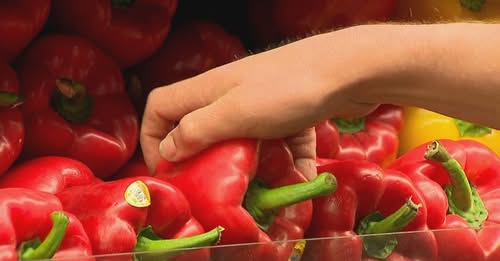
Right now, grocery stores, farmers, and restaurants are in a bit of limbo. Many are trying to prepare for tariff impacts to come, but are also not sure exactly what their impact will look like. The bottom line could impact access, prices, and demand for certain food products both locally and internationally.
Saul Evanhoff is the store director for Lucky’s Market in Boulder. Following President Donald Trump’s announcement on tariffs Wednesday, he’s taking a closer look at the journey his products take, from farm to shelf.
“Everything’s up in the air,” Evanhoff said. “We’ll just have to search, probably search a little harder for different items, and just try to work with farmers to get more unique things if possible.”
The tariffs could impact cost and access to out-of-season produce, avocados year-round, pre-packaged goods from other countries, and a long list of other groceries. Evanhoff says customers could start seeing price impacts as soon as warehouses move through the product they’ve already purchased.
However, for stores like Lucky’s and their shoppers, the tariffs could focus more on local food production.
Trump said on Wednesday, “Reciprocal. That means they do it to us, and we do it to them.”
Trump believes levies will boost domestic manufacturing and level the playing field with other countries that impose higher tariffs on U.S. imports than the U.S. charges for their products.
Executive Director of the Boulder Farmer’s Market Mackenzie Sehlke says many of her vendors expect more customers if foreign food costs rise.
“We’re growing all that we can, and farmers are doing their best to be flexible and available for that local influx,” Sehlke said.
But some farmers are concerned about not being able to meet or plan for that demand without knowing the exact impacts of the tariffs; which could include increasing their production costs and prices.
“Uncertainty about what the long-term impact of tariffs will do on fuel, on machinery, on things like jars for canning peaches or applesauce,” Sehlke said.
And eventually, Sehlke says any change in price could impact consumer nutrition.
“Produce is expensive generally compared to shelf stable products, so what I would hate to see is people not eating fresh fruits and vegetables, not eating any kind of that fresh product, because their budgets are getting tighter,” Sehlke said.
The Boulder Farmers Market kicks off for the season this weekend, where vendors will be closely watching local demand, all while keeping an eye on if their international sales are impacted.
